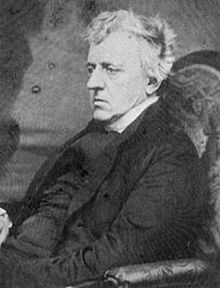
Perpetual curate was a class of resident parish priest or incumbent curate within the United Church of England and Ireland (name of the combined Anglican churches of England and Ireland from 1800 to 1871). The term is found in common use mainly during the first half of the 19th century. The legal status of perpetual curate originated as an administrative anomaly in the 16th century. Unlike ancient rectories and vicarages, perpetual curacies were supported by a cash stipend, usually maintained by an endowment fund, and had no ancient right to income from tithe or glebe.
In the 19th century, when large numbers of new churches and parochial units were needed in England and Wales politically and administratively, it proved much more acceptable to elevate former chapelries to parish status, or create ecclesiastical districts with new churches within ancient parishes, than to divide existing vicarages and rectories. Under the legislation introduced to facilitate this, the parish priests of new parishes and districts, were legally perpetual curates.
There were two particularly notable effects of this early 19th-century practice: compared to rectors and vicars of ancient parishes, perpetual curates tended to be of uncertain social standing; and also be much less likely to be adequately paid.
Perpetual curates disappeared from view in 1868, after which they could legally call themselves vicars, but perpetual curacies remained in law until the distinct status of perpetual curate was abolished by the Pastoral Measure 1968.
